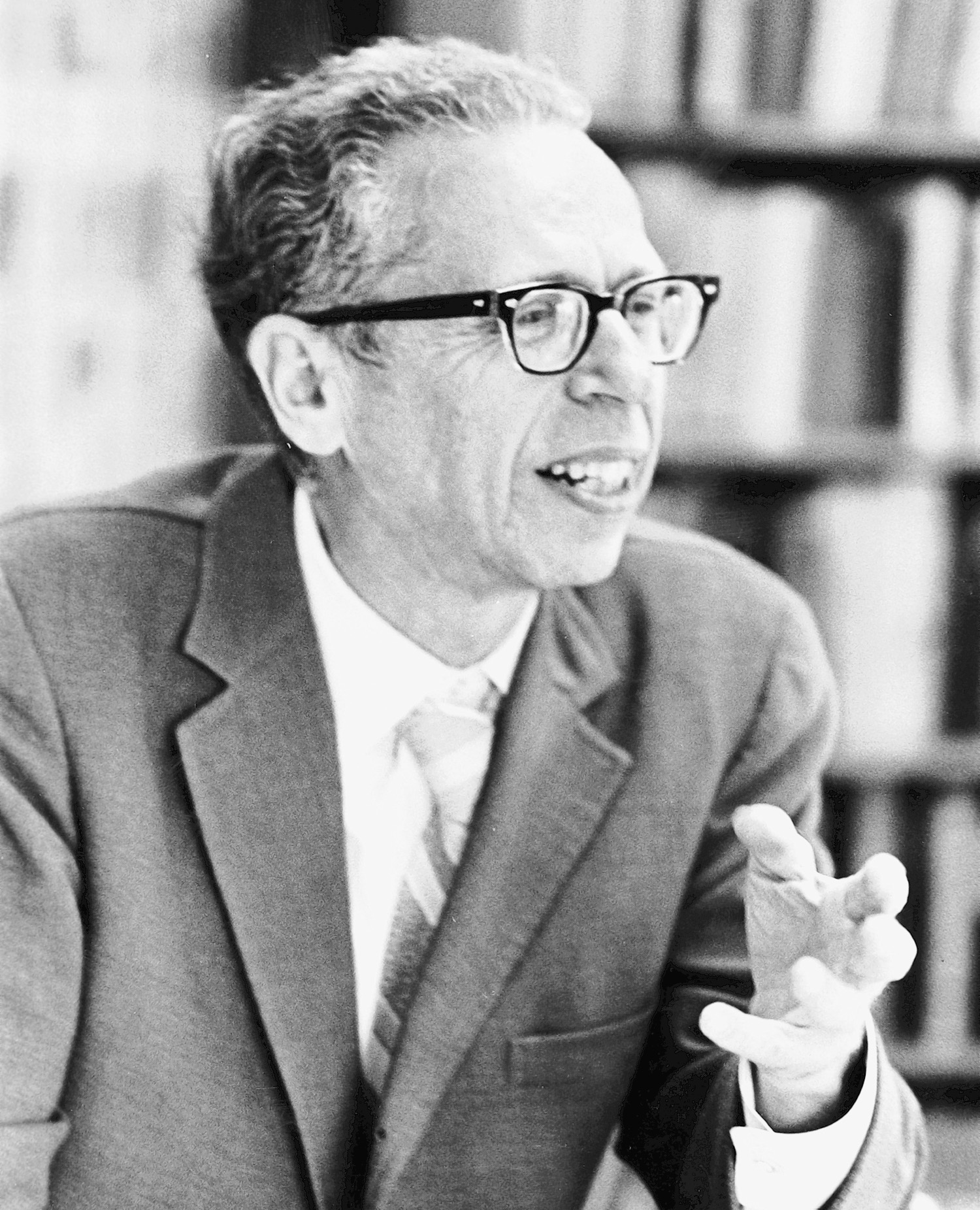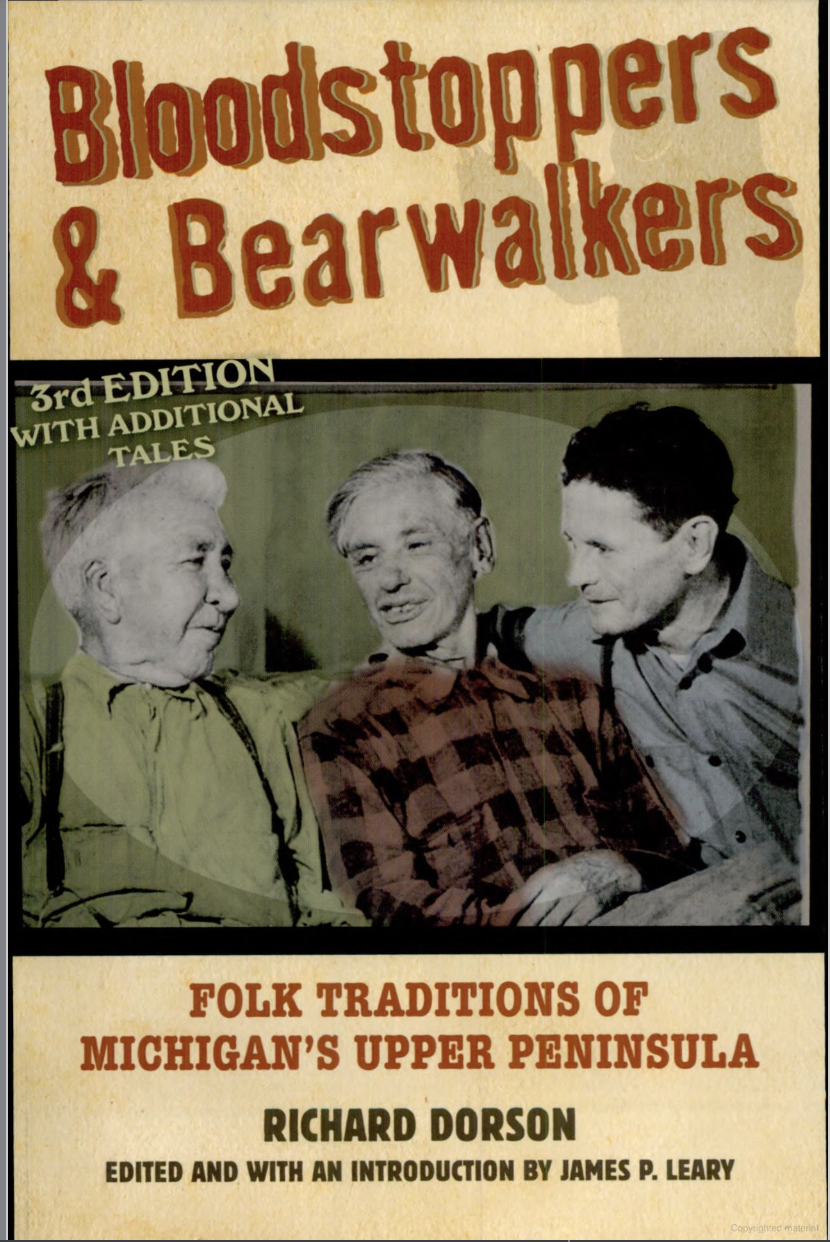Art Form: Folklore documentation and publication
Location(s): Bloomington, Indiana
Richard Dorson

Portrait of Richard Dorson

"Bloodstoppers and Bearwalkers: Folk Traditions of Michigan's Upper Peninsula" by Richard Dorson
Richard M. Dorson (1916-1981)* was Distinguished Professor of History and Folklore and Director of the Folklore Institute at Indiana University. He was a remarkable and energetic scholar who, at the time of his death, was the dominant force in the study of folklore. Dr. Dorson’s documentation of Upper Peninsula and southwestern Michigan traditions is his legacy to Michiganders.
In 1944 Richard Dorson joined the faculty at Michigan State College; in 1957 he left for Indiana University. During his time at Michigan State College, he and his students conducted groundbreaking research in Michigan, documenting everyday life and expression that have since changed or no longer exist. In 1946, Richard Dorson drove the byways of Michigan’s Upper Peninsula, sat in hotel lobbies and homes, in barbershops and Grange Halls, in bars and church basements collecting the oral traditions, customs, and beliefs of many of the region’s diverse population. The Upper Peninsula for Richard Dorson was a microcosm of America. In this thinking, he was well ahead of his time. Here he found a truly diverse population, composed of different ethnicities, languages, religions, and occupations. It was a region where the environment, economy, politics, and diverse peoples forged the region’s folklore within the trajectory of American history.
Dorson’s research in the Upper Peninsula left a rich record of folklife of a specific region at a specific moment in American history, resulting in a number of articles and Bloodstoppers and Bearwalkers, (1) which has been reprinted many times over the years.
Dr. Dorson also conducted important work among African Americans of southwestern Michigan, exploring the intercultural relation of race in regional and national culture. His research resulted in historically and culturally important records, published in articles and books, including Negro Folktales in Michigan (2) andNegro Tales from Pine Bluff, Arkansas, and Calvin, Michigan. (3)He also documented the folklore of Michigan State College students, thereby questioning the popular assumptions about who are the folk and proving that students and educated classes are also the folk.
Our understanding of American folklore and the cultural history of the Upper Peninsula, in particular, would be infinitely poorer without Richard Dorson’s work. His popular writings forced students and scholars of culture to look closely at Michigan’s cultural inheritance and relate it to their own experience. He brought attention to a region, culture, and people who eluded national attention.
(1) Cambridge: Harvard University Press, 1952.
(2) Cambridge: Harvard University Press, 1956. Reprinted 1974, Greenwood Press, Westport, CT.
(3) Bloomington: Indiana University Press, 1958.
*This award was presented posthumously





